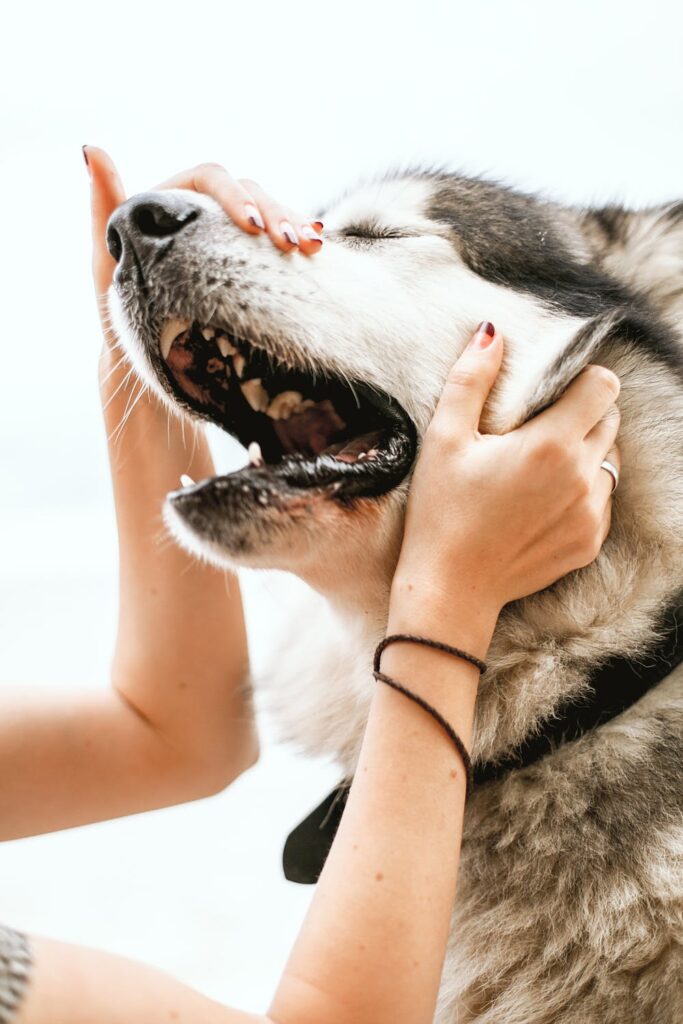Table of Contents
- Introduction
- What is a dog bite?
- How serious can a dog bite be?
- What to do if a dog bites you
- Assess the wound
- Wash the wound with soap and water
- Seek medical attention
- Report the bite to animal control
- Rabies
- What is rabies?
- How is rabies transmitted?
- How is rabies treated?
- Preventing dog bites
- Do not approach strange dogs
- Do not let children approach strange dogs unsupervised
- Be aware of your surroundings
- If a dog approaches you, stand still and do not make any sudden movements
- If a dog bites you, try to stay calm and do not pull away
- Conclusion
- Frequently Asked Questions

Dog bites can be a frightening and traumatic experience. However, it is important to remember that most dog bites are not serious and can be treated with prompt medical attention.
Here are some things to do if a dog bites you:
- Assess the wound. The severity of a dog bite can vary depending on the size of the dog, the location of the bite, and the depth of the bite. If the bite is deep or bleeding heavily, you should seek medical attention immediately.
- Wash the wound with soap and water. This will help to prevent infection.
- Seek medical attention. A doctor will be able to assess the wound and provide treatment, if necessary. This may include cleaning the wound, giving antibiotics, and providing pain medication.
- Report the bite to your local animal control agency. This is important to help track the dog and prevent future bites.
If the dog is known to be up-to-date on its rabies vaccination, you may not need to receive the rabies vaccine. However, if the dog’s vaccination status is unknown, you will need to receive the rabies vaccine as soon as possible.
Rabies is a serious viral disease that can be fatal if not treated. The rabies vaccine is very effective, but it must be given before you are exposed to the virus.
Here are some additional tips to help prevent dog bites:
- Do not approach strange dogs. Even if the dog looks friendly, it is best to err on the side of caution.
- Do not let children approach strange dogs unsupervised. Children are more likely to be bitten by dogs than adults.
- Be aware of your surroundings. If you see a dog that is acting aggressively, do not approach it.
- If a dog approaches you, stand still and do not make any sudden movements. This will help to avoid startling the dog.
- If a dog bites you, try to stay calm and do not pull away. This could make the bite worse.
By following these tips, you can help to prevent dog bites and keep yourself safe.
Conclusion
Dog bites can be a frightening and traumatic experience. However, it is important to remember that most dog bites are not serious and can be treated with prompt medical attention. By following the tips in this blog post, you can help to prevent dog bites and keep yourself safe.
Frequently Asked Questions
Q: What is a dog bite?
A: A dog bite is an injury caused by a dog’s teeth. Dog bites can range in severity from minor scratches to deep puncture wounds.
Q: How serious can a dog bite be?
A: The severity of a dog bite can depend on a number of factors, including the size of the dog, the location of the bite, and the depth of the bite. Dog bites can cause serious injuries, including infection, tetanus, and rabies.
Q: What should I do if a dog bites me?
A: If a dog bites you, it is important to seek medical attention immediately. The following are the steps you should take:
- Assess the wound. The severity of a dog bite can vary depending on the size of the dog, the location of the bite, and the depth of the bite. If the bite is deep or bleeding heavily, you should seek medical attention immediately.
- Wash the wound with soap and water. This will help to prevent infection.
- Seek medical attention. A doctor will be able to assess the wound and provide treatment, if necessary. This may include cleaning the wound, giving antibiotics, and providing pain medication.
- Report the bite to your local animal control agency. This is important to help track the dog and prevent future bites.
Q: What is rabies?
A: Rabies is a serious viral disease that can be fatal if not treated. The rabies virus is found in the saliva of infected animals, and it is transmitted through bites.
Q: How is rabies transmitted?
A: Rabies is transmitted through the bite of an infected animal. The virus enters the body through the wound and travels to the brain. Once the virus reaches the brain, it can cause serious illness and death.
Q: How is rabies treated?
A: There is no cure for rabies once symptoms have developed. However, if the rabies virus is detected early, it can be prevented from reaching the brain. This is done through a series of injections called the rabies vaccine.
Q: How can I prevent dog bites?
A: There are a number of things you can do to prevent dog bites, including:
- Do not approach strange dogs. Even if the dog looks friendly, it is best to err on the side of caution.
- Do not let children approach strange dogs unsupervised. Children are more likely to be bitten by dogs than adults.
- Be aware of your surroundings. If you see a dog that is acting aggressively, do not approach it.
- If a dog approaches you, stand still and do not make any sudden movements. This will help to avoid startling the dog.
- If a dog bites you, try to stay calm and do not pull away. This could make the bite worse.
By following these tips, you can help to prevent dog bites and keep yourself safe.
